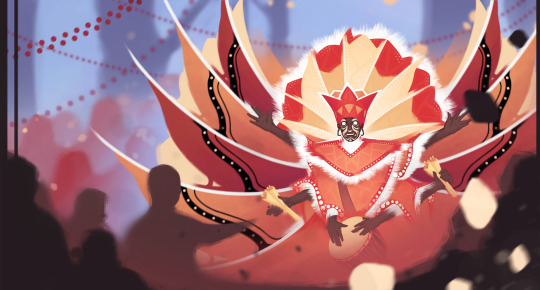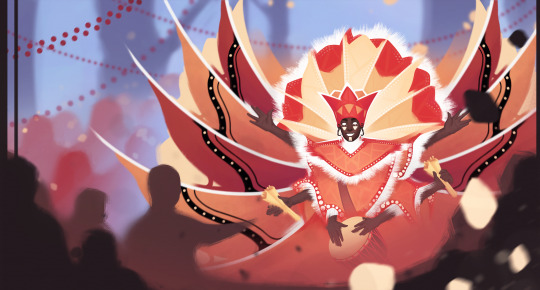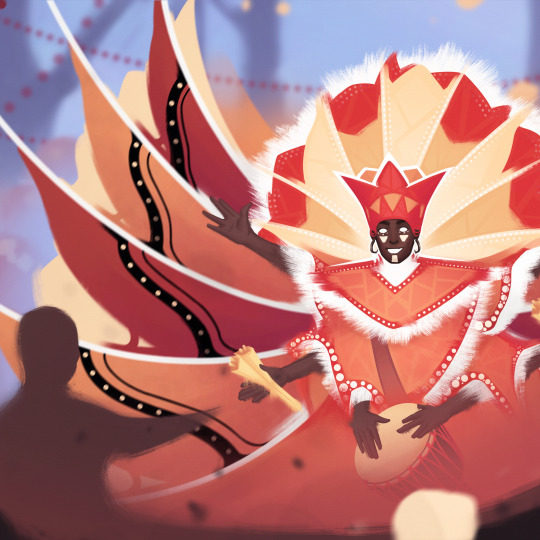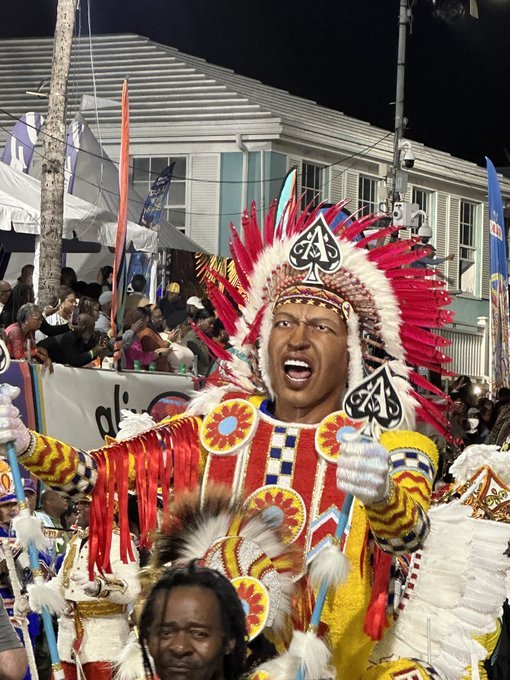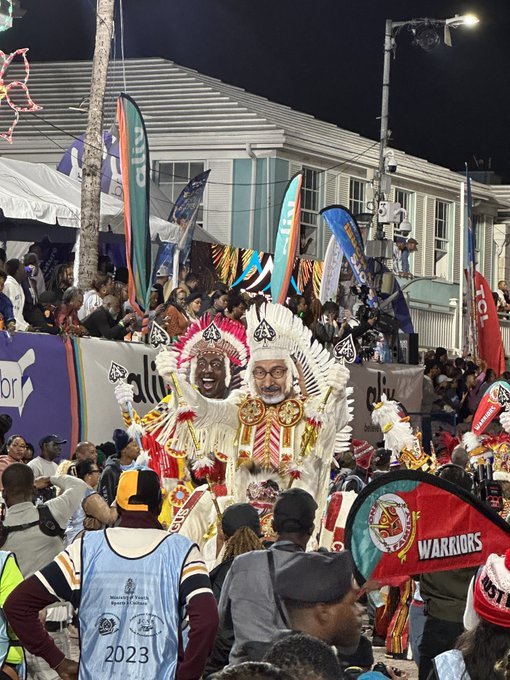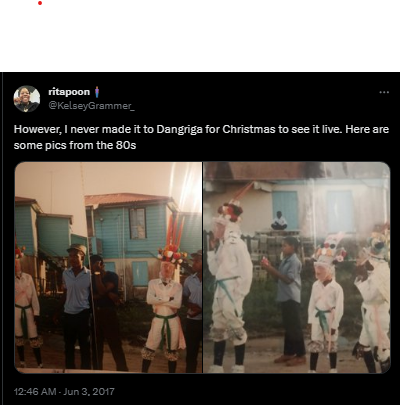#Junkanoo
Text
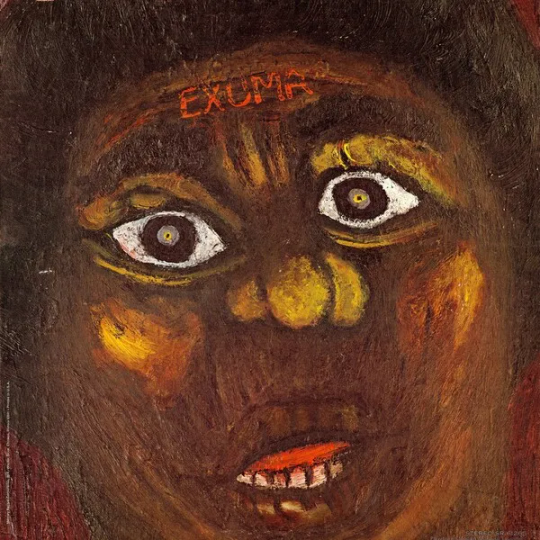
#Caribbean Folk Music#Psychedelic Folk#Folk Rock#Junkanoo#Caribbean Music#Reggae#1970s#Bahamas#poll#Spotify
60 notes
·
View notes
Text
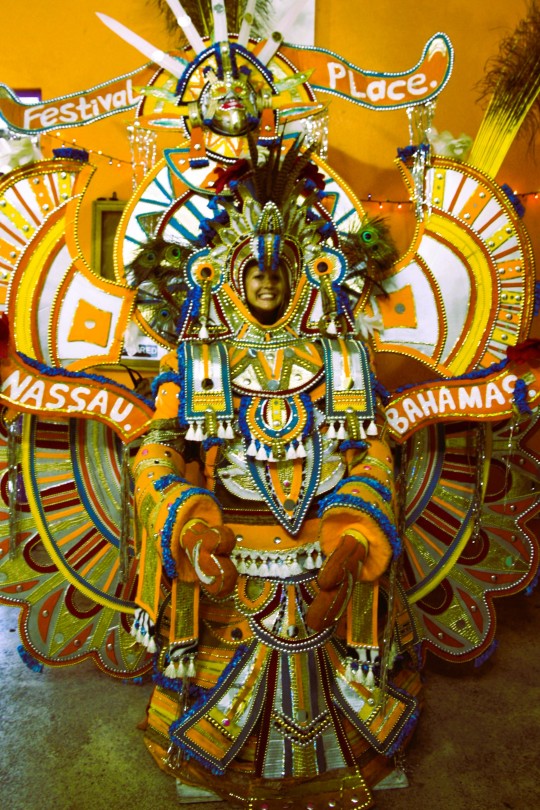
Junkanoo, Nassau, Bahamas: Junkanoo is a festival that was originated during the period of African chattel slavery in British American colonies. Wikipedia Junkanoo, named after the West African John Canoe Festival, originated in the Bahamas around the 17th century as a masquerade. Slaves with their faces hidden under a flour paste, celebrated on Boxing Day and the day after Christmas.
29 notes
·
View notes
Text
Junkanoo is a street parade with music, dance, and costumes with origin in many islands across the English speaking Caribbean every Boxing Day (26 December) and New Year's Day (1 January). These cultural parades are predominantly showcased in the Bahamas where the music is also mainstreamed, and competition results are hotly contested, There are also Junkanoo parades in Miami in June and Key West in October, where local black populations have their roots in the Caribbean. In addition to being a culture dance for the Garifuna people, this type of dancing is also performed in The Bahamas on Independence day and other historical holidays. Historically, Junkanoo parades were also found in Southeastern North Carolina.
However, the custom became less popular after slavery was abolished. The last known Jonkonnu celebration in the Southern United States was in Wilmington, N.C., in the late 1880s.
The festival may have originated several centuries ago, when enslaved descendants of Africans on plantations in The Bahamas celebrated holidays granted around Christmas time with dance, music, and costumes. After emancipation the tradition continued and junkanoo evolved from simple origins to a formal, organised parade with intricate costumes, themed music and official prizes within various categories.
The origin of the word junkanoo is disputed. Theories include that it is named after a folk hero named John Canoe or that it is derived from the French gens inconnus (unknown people), as masks are worn by the revelers.
According to Edward Long, an 18th-century Jamaican slave owner/historian, the John Canoe festival was created in Jamaica and the Caribbean by enslaved Akans who backed the man known as John Canoe. Canoe, an Ahanta from Axim, Ghana, was an ally soldier for the Germans, until one day he turned his back on them for his Ahanta people and sided with Nzima and troops in order to take the area from the Germans and other Europeans. The news of his victory reached Jamaica and he has been celebrated ever since that Christmas of 1708 when he first defeated Prussic forces for Axim. Twenty years later his stronghold was broken by neighbouring Fante forces aided by the military might of the British.
Ahanta, Nzima and Fante captives were taken to Jamaica as prisoners of war. The festival itself included motifs from battles typical of Akan fashion. The many war masks and war dance formations of Ahanta people became part of this celebration the world over, especially in the Caribbean. The elaborate masks and attire resemble Akan battledress with charms, referred to as a "Batakari".

Djékanou is a town in central Ivory Coast. right in the middle of the Akan population of that country. It is a sub-prefecture of and the seat of Djékanou Department in Bélier Region, Lacs District. Djékanou is also a commune
#junkanoo#african#afrakan#akan#igbo#yoruba#caribbean#kemetic dreams#brownskin#afrakans#africans#brown skin#african culture#deep reddish brown skin#epic video
188 notes
·
View notes
Text
Oh how I LOVE being Bahamian 🥰🥰
(This is a junkanoo parade.)
12 notes
·
View notes
Text
17 notes
·
View notes
Photo
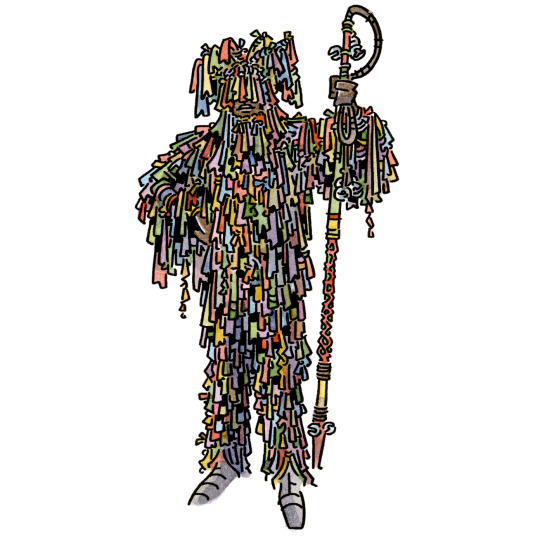
Companions of Christmas 13: Pitchy Patchy
Once a highly decorated Akan military commander, the man who would become known as Pitchy Patchy was stolen from his home and enslaved in Jamaica, but he was able to escape to freedom and, operating from the Maroon towns that he helped to defend, would regularly lead raids against the plantations to free others.
Since the folks that he rescued didn’t have access to the kinds of ornate trophies and medals that he’d worn in the past, they would honor him with a simple strip of colored cloth as a sign of their gratitude for his valor. He saved so many people that he was eventually festooned with these cloth strips, to the point that they covered his entire body.
At Christmastime, he would parade boldly through the streets during the festival of Jonkonnu (or Jankunu, or Junkanoo, etc), and he continues to be a part of Jonkonnu parades to this very day.
85 notes
·
View notes
Text
19: Exuma // Exuma II
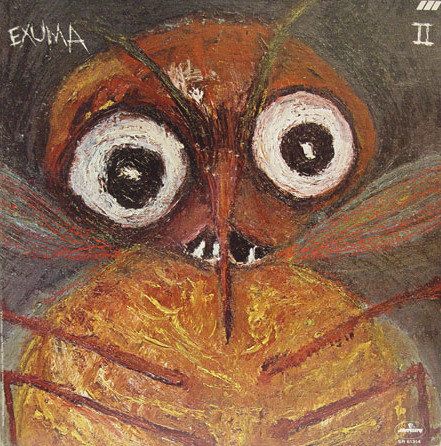
Exuma II
Exuma
1970, Mercury
Not aiming for trenchant analysis here. For anyone who loves themselves some demon wax, Exuma II is too good a time to dig up like that. Exuma the Obeah Man (born Macfarlane Mackey on Cat Island, Bahamas) was a genuine mystic, throwing his whole pussy into a persona wreathed in ritual smoke and crackling with spiritual lightning. His early songs clatter along like unruly processions, laden down with bells, congas, whistles, his musicians following the capering Obeah Man, who rambles and shrieks as he strums folksy melodies on his acoustic guitar.
There aren’t really songs like Exuma’s anywhere else, though some combination of Dr. John’s “I Walk on Guilded Splinters” and Screaming Jay Hawkins puts you within summoning distance. What to make of “Paul Simon Nontooth,” an account of a necromantic ritual gone awry set to harmonica and altar bells that would cause Paul Simon, were he ever exposed to it, to turn from mogwai to gremlin:
Get me blood, for I thirst
And if you don't get me blood, I'll drink yours first
See this cane? Come, come here
Look at my cane, look at my head
See this head? See this head?
These are the markings of the dead
If your souls have long been gone
And you have nothing to trade tonight,
I’ll pluck the life from you tonight
Give me music! Give me music! Give me music!
King Diamond would be proud.
Ah, sweet kisses
There is no soul
From the young and from the old
Remove your clothes
Remove your earthly goods
You're going with me to the fiery woods
You can't sell what you don't own
Hurry, hurry, come on, here comes the moon
youtube
Oh hell yes. Oh fuck yes.
While Exuma II lets more light in on Side 2 than its (even more madcap) self-titled predecessor ever does, the celebratory energy present on “African Rhythm” and “Zandoo” gives the record a healthy balance. Unlike a lot of artists whose work scans (from the western perspective anyway) as outsider-y, Mackey actually was appropriately venerated in his home nation as a musician, playwright, and painter. (Those are his mind-bending paintings on the covers of his albums.) Exuma II is the sound of an artist, and a raucous crew of collaborators, caught up in the ecstasy of his own powers. It’ll never cease to be a thrilling, idiosyncratic listen.
youtube
19/365
8 notes
·
View notes
Photo

Junkanoo festival attendees, Jamaica.
48 notes
·
View notes
Text
youtube
Junkanoo - Exuma (Exuma, 1970)
#Soul#Soul Music#Soul Music Songs#Music#Music Songs#Exuma#1970#Mercury#Soul Folk#Caribbean Soul#Junkanoo#Youtube#Instrumental
4 notes
·
View notes
Text
Cruise Excursion Shorts - Junkanoo Museum at the New Nassau Bahamas Cruise Port
Visit http://www.cruisingaddicts.com/
#junkanoo#nassau#bahamas#bahamascruise#shoreexcursion#shoreexcursions#cruiseports#excursions#excursion#junkanoomuseum#nassauport#nassaucruiseport#portofnassau#bahamasculture
1 note
·
View note
Text
Junkanoo 2023 Messages, Wishes and Greetings

This day is all about sharing with family and friends beautiful Junkanoo wishes and messages. Have the vibrant Junkanoo greetings and quotes, sayings and captions shared with everyone around us on Facebook, Instagram and WhatsApp.
0 notes
Text
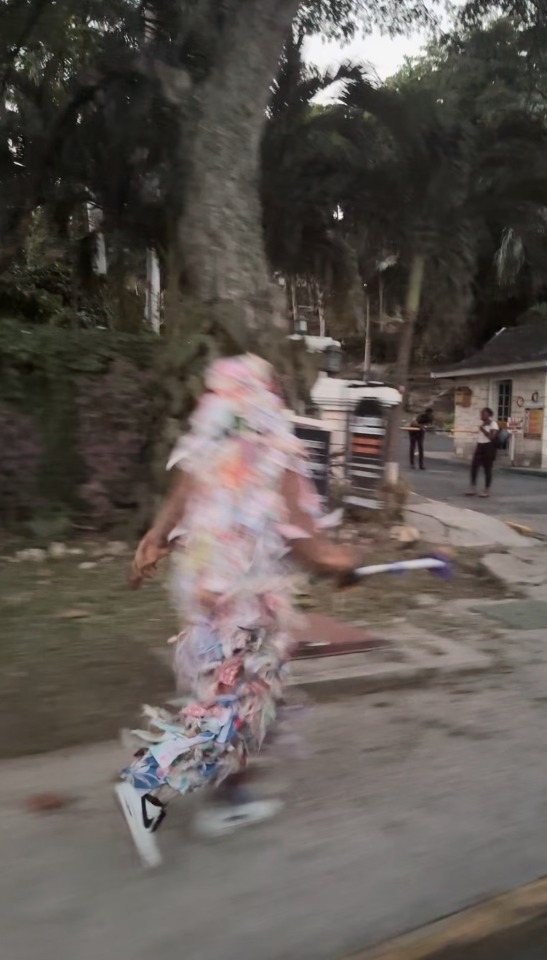
Junkanoo reveler. Ocho Rios, Jamaica | December 2023
0 notes
